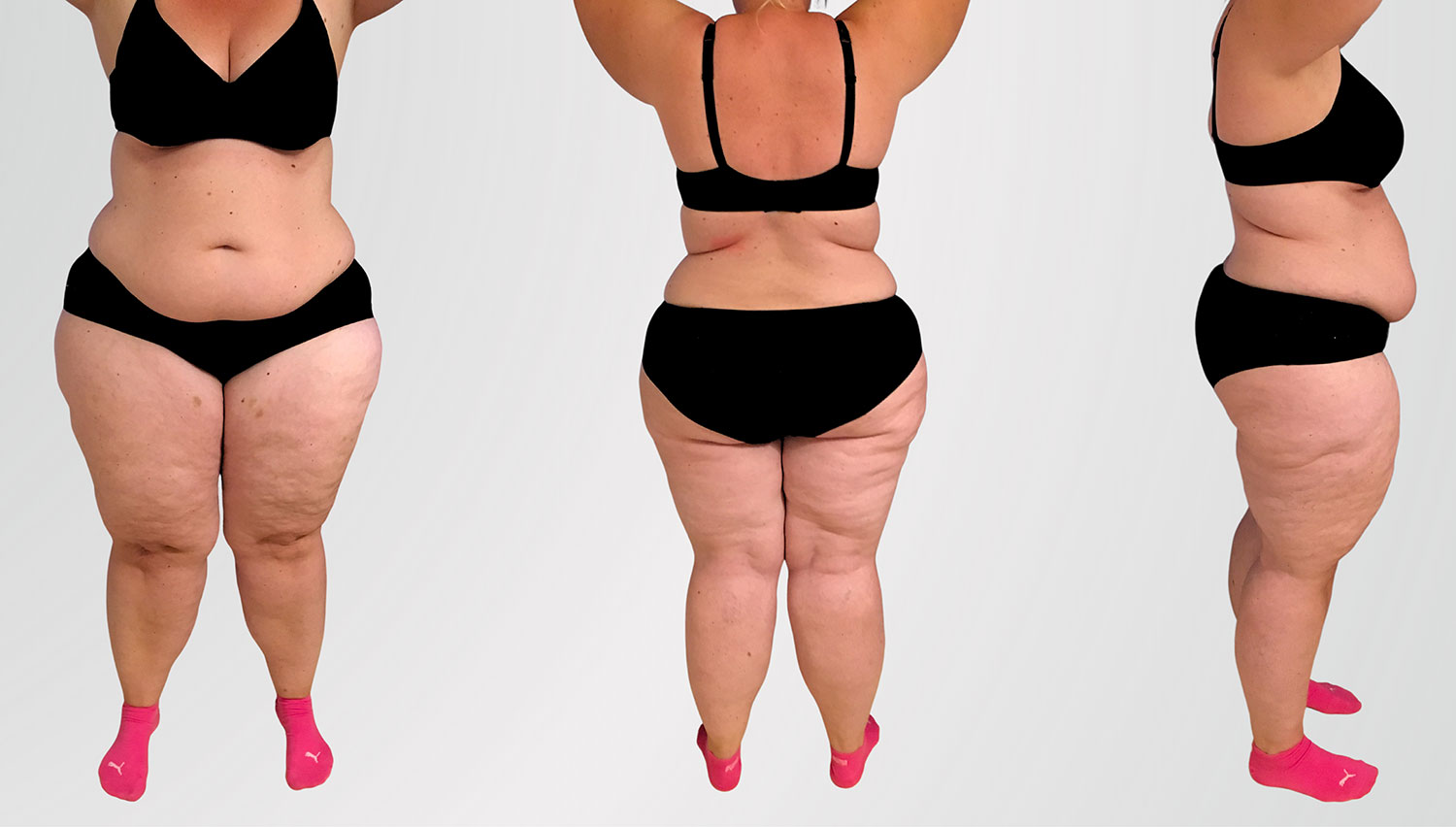Women with lipedema face inadequate care
A new research study from the School of Health and Welfare at Jönköping University reveals that women with lipedema frequently encounter mistrust, prejudice, and low levels of patient satisfaction. Despite being a chronic condition that primarily affects women, there is a significant lack of knowledge and clinical guidelines for lipedema care within the Swedish healthcare system.

Woman with lipoedema. Photo: Jenny Borg
What is lipedema
Lipedema is a chronic condition affecting women, characterised by abnormal and painful fat accumulation, mainly in the buttocks, hips, and thighs. It is often mistaken for obesity.
This is the first study in Sweden to combine statistical data with written narratives from 245 women with lipedema, comparing their experiences of healthcare with those of women in the general population. Most participants were in an advanced stage of the condition, with many having experienced symptoms since adolescence.
The results show that the path to diagnosis is often prolonged – one in five women had sought medical help more than twenty times before receiving the correct diagnosis.
“Several women described it as a matter of ‘luck’ to encounter a healthcare professional who was knowledgeable about lipoedema,” says Johanna Falck, lecturer and doctoral candidate at the School of Health and Welfare.
Low patient satisfaction and high personal responsibility
Lack of awareness about lipedema remains widespread. Instead of receiving information from healthcare providers, many women had to seek out knowledge independently – often through the internet or social media.
Self-care strategies such as dietary adjustments, exercise, and the use of compression garments were common. However, more effective treatments, such as manual lymphatic drainage or liposuction, were rarely offered within the public healthcare system, and thus had to be paid for privately.
Dissatisfaction with care was widespread among women with lipedema. They reported significantly poorer healthcare experiences than the general population, particularly in terms of continuity of care, information, respect, and emotional support. Many described encounters with healthcare professionals as disrespectful and condescending, often coloured by weight-related bias. Symptoms were frequently dismissed as psychological issues or attributed to obesity and lifestyle, resulting in women not being taken seriously and failing to receive appropriate care.
“A comprehensive approach is needed to improve care for women with lipedema. The current shortcomings lead to unnecessary suffering and health inequities,” says Johanna Falck.
The researchers now call for national guidelines, training for healthcare professionals, and multidisciplinary teams in order to provide personalised and equitable care. Early diagnosis and access to appropriate treatment are highlighted as critical in reducing the suffering of women with lipedema.
Facts
Johanna Falck is a registered specialist nurse and midwife. She defended her doctoral thesis on 23 May at the School of Health and Welfare. The dissertation, Women with Lipoedema – An exploration of health, quality of life, social life, and healthcare experiences, was examined by Professor Lisa Skär from Kristianstad University. Read the thesis here.
